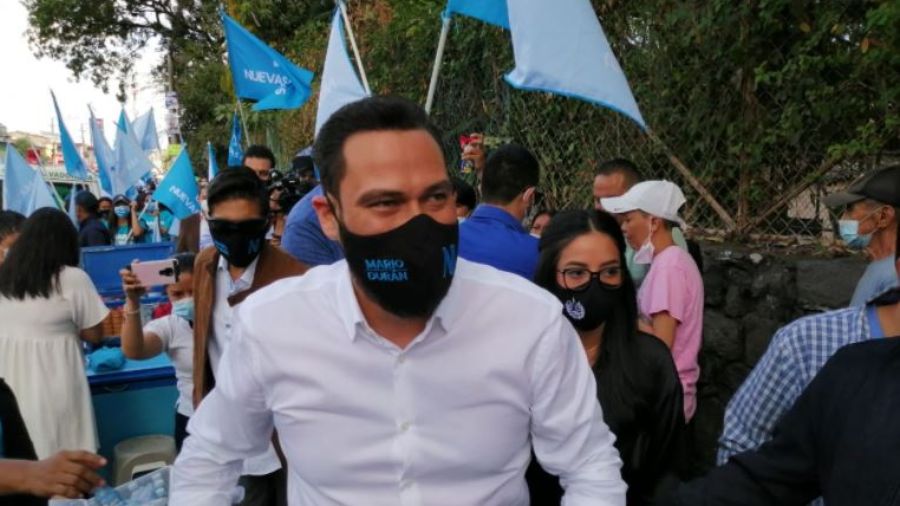
Durán declared himself the winner after beating his main contender Ernesto Muyshondt of the ARENA party, who was aiming for his second term at the helm of the municipality.
Mario Durán, candidate of New Ideas, becomes the new mayor of San Salvador after defeating his contender Ernesto Muyshondt, of the ARENA party, who was aiming for a second term as head of the municipality, according to preliminary data from the count of the minutes of the Court. Electoral Supreme.
Durán was declared the winner this Monday morning via his Twitter account, where he changed the information on his profile and described himself as “Elected Mayor of the capital of El Salvador.”

Later, his party also supported Durán’s announcement through a publication on the social network.
“The @nuevasideas are returning to San Salvador! @Marioduran, Mayor!”
Also: view the preliminary results of the 2021 elections in real time here
On February 28, Durán cast the vote at the Manuel José Arce National Institute, in the Modelo neighborhood of San Salvador, where he arrived accompanied by a group of supporters.
Until 10:26 in the morning of this Monday, he was declared the winner of the capital, according to preliminary data from the TSE, with 88.70 percent of the minutes examined.
Durán’s election comes amid allegations of alleged corruption while accompanying Bukele in his tenure as head of the main commune from 2015-2018. The political opposition has also indicated that the government has used public funds to run an election campaign in favor of its allied parties New Ideas and Grand Alliance for National Unity (GANA).
On February 28, a total of 17,074 candidates were elected in a day that highlighted the crowds and long lines at the voting centers.
Also: MINUTE BY MINUTE: The JRVs advance in the number of votes in the election of El Salvador’s mayors and delegates
According to data from the Supreme Electoral Tribunal (TSE), more than 5.3 million voters were called to vote in the 8,451 polling stations in the 1,595 voting centers around the country.
Despite the influx of Salvadorans into the polls, some polling stations registered less than half of their electoral roll, as was the case with JRV in Santa Ana, Apopa and Moncagua.